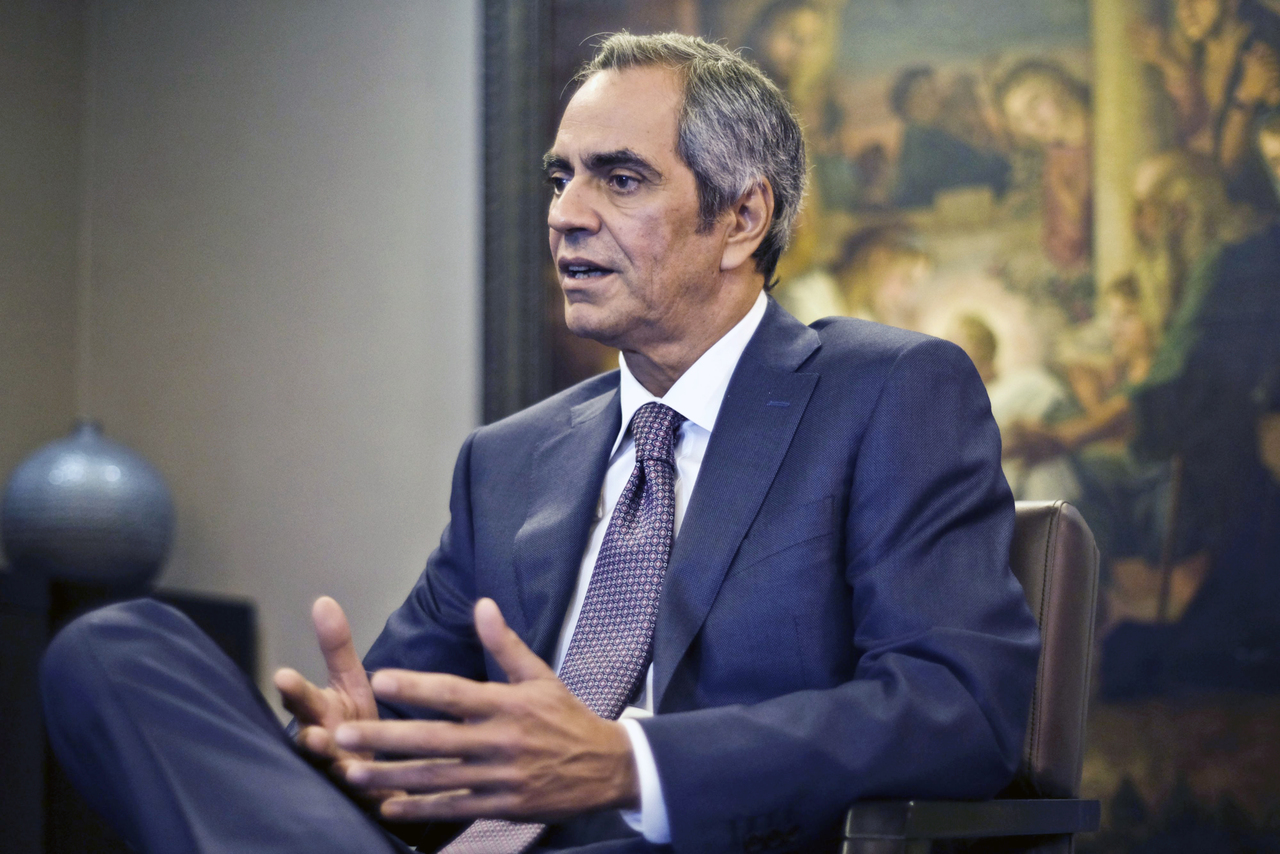Philippine 'ports king' bets big on war zones
Sign up now: Get insights on Asia's fast-moving developments

A photo taken on Sept 16, 2016, shows billionaire Enrique Razon, chairman of International Container Terminal Services Inc and Bloomberry Resorts Corporation, during an interview in Manila.
PHOTO: BLOOMBERG
MANILA - It is counter-intuitive, but Mr Enrique Razon - the Philippines' fourth-wealthiest man with a net worth estimated at US$5.1 billion (S$6.92 billion) - has always had the alchemist's eye.
While most see lead at the bottom of the pot, he envisages harvesting gold.
It is the force behind Mr Razon steering International Container Terminal Services Inc (ICTSI), his family's crown jewel, into areas where others see only chaos and ruin.
ICTSI, which is among the world's top five port operators, has operations in Iraq, the Democratic Republic of Congo and Pakistan. It had been in Syria, and had tried dipping its toes in Sudan.
"They're really not so bad. They look bad from the outside. But when you're there, things are pretty normal. They just get a bad rep sometimes," Mr Razon said in an interview with The Straits Times.
He has had pleasant surprises in these places as well as bad experiences.
Iraq, the Congo and Pakistan, for instance, "turned out to be better than their reputations made them out to be", he said.
Iraq's trade has been booming in the past five years, despite sectarian violence, terrorist attacks and crippling political crises that periodically rock the country.
ICTSI has just expanded its container and cargo-handling facility in Basra, in southern Iraq, with two new berths that will allow it to handle larger ships.
It is doubling its current capacity in Kinshasa, Congo, to 400,000 TEUs a year.
In Pakistan, the company launched in July a cargo rail service connecting Karachi and Lahore.
But it has not always been a clear win for Mr Razon.
ICTSI had to pull out of Sudan in April, just three months after concluding a deal to take over a port there, because of a regime change.
"It all went wrong because the government was overthrown. It was unforeseen at the time," he said.
ICTSI withdrew from Syria in 2012 after a civil war tore the country apart and made the business environment "untenable, hostile and dangerous".
In casting his net wide, Mr Razon is essentially hedging his bets.
"These places have high growth potential, and also sometimes the dips. But the key is you have to be in many of them because when things go bad, they don't happen all at the same time."
"Things can go wrong in many places," he said, even in places that seem to offer stability.
Oregon, for one, proved to be a troublesome investment.
It was dogged by labour strikes and ICTSI walked away in 2017, seven years after securing its first deal in the United States.
A federal jury awarded ICTSI US$93.6 million last month, finding the dock workers union sabotaged shipping traffic and caused productivity to plummet through years of labour slowdowns and stoppages.
Mr Razon said the key to thriving in troubled places is to stay out of politics. "You're just asking for trouble… You keep yourself clean, and don't get involved with factions."
ICTSI has been through three governments in Iraq. It stayed in business because the government did not meddle with the business environment.
"You wait for them to appoint a new Cabinet. But you don't really feel them on the ground," he said.
Mr Razon has always been drawn to risks, even in his personal choices.
At 59, he still goes kite-boarding when he finds the time. "It's a little bit dangerous, but once you know what you're doing, it's a lot of fun."
But in business, his biggest challenge is the near-zero growth in global container traffic because of the trade wars stoked by protectionist policies in the US.
He, however, is playing the long game. Even with 32 ports in 19 countries, he is still looking to expand his port business.
"We have a long-term view. These short-term things really don't bother us… Wars, revolutions. These are nothing. We just go forward. We've had a few hiccups like Sudan. But that's just a learning experience," Mr Razon added.


